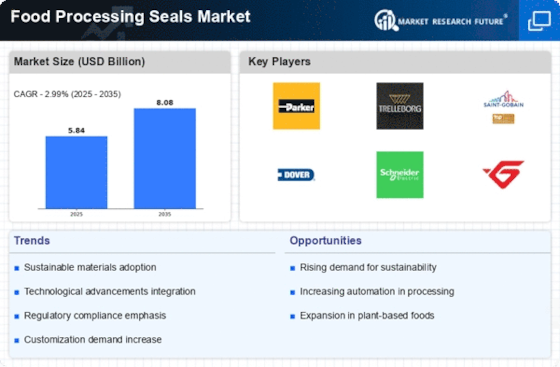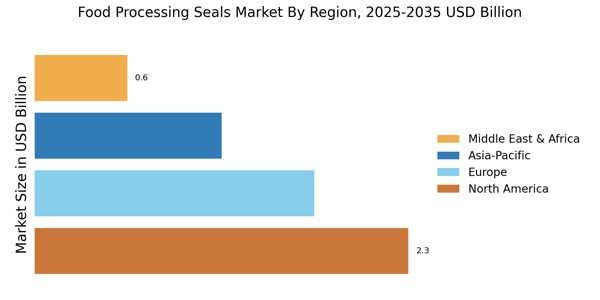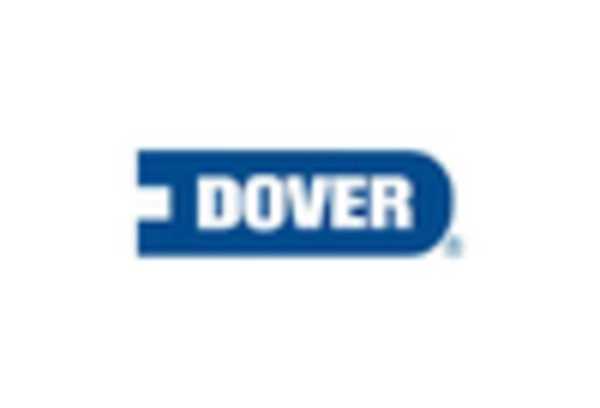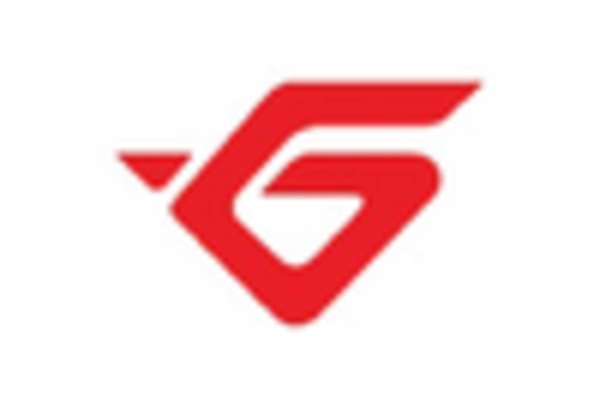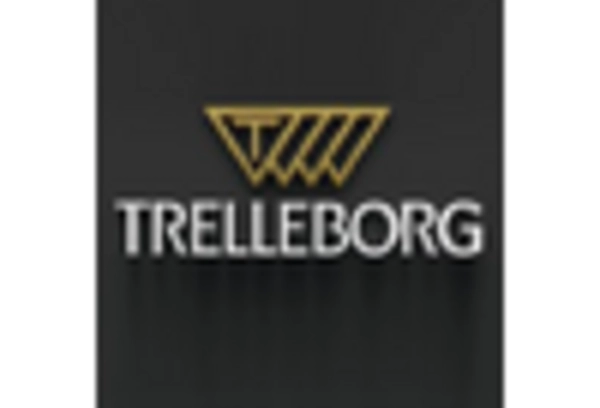Rising Demand for Processed Foods
The increasing demand for processed foods is a primary driver for the food processing Seals Market. As consumers seek convenience and longer shelf life, food manufacturers are compelled to enhance their production capabilities. This trend is reflected in the projected growth of the processed food sector, which is expected to reach a valuation of approximately 3 trillion by 2025. Consequently, the need for reliable sealing solutions becomes paramount to ensure product integrity and safety. food processing seals play a crucial role in maintaining hygiene and preventing contamination during production and packaging. As the processed food market expands, the Food Processing Seals Market is likely to experience a corresponding surge in demand, necessitating innovative sealing technologies to meet evolving industry standards.
Growth of the E-commerce Food Sector
The growth of the e-commerce food sector is emerging as a significant driver for the Food Processing Seals Market. With the increasing popularity of online grocery shopping and food delivery services, food manufacturers are adapting their packaging solutions to meet the demands of this rapidly evolving market. Effective sealing solutions are essential to ensure product freshness and prevent spoilage during transit. The e-commerce food market is projected to grow at a rate of approximately 10% annually, creating a substantial opportunity for the Food Processing Seals Market. As companies strive to enhance their packaging for online sales, the demand for innovative sealing technologies that cater to this sector is likely to increase, reflecting the changing landscape of food distribution.
Regulatory Compliance and Food Safety Standards
Regulatory compliance and stringent food safety standards are critical drivers for the Food Processing Seals Market. Governments and regulatory bodies worldwide are enforcing rigorous guidelines to ensure food safety and quality. This has led food manufacturers to prioritize the use of high-quality sealing solutions that meet these standards. The Food and Drug Administration (FDA) and other regulatory agencies have established specific requirements for materials used in food processing, which directly impacts the selection of seals. As a result, the demand for compliant sealing solutions is expected to rise, with the Food Processing Seals Market adapting to these evolving regulations. This focus on safety not only protects consumers but also enhances brand reputation, further driving the need for reliable sealing technologies.
Technological Advancements in Sealing Solutions
Technological advancements are significantly influencing the Food Processing Seals Market. Innovations in materials and manufacturing processes have led to the development of high-performance seals that offer enhanced durability and resistance to extreme conditions. For instance, the introduction of advanced elastomers and thermoplastics has improved the sealing capabilities in various food processing applications. The market for these advanced sealing solutions is projected to grow at a compound annual growth rate of around 5% through 2025. This growth is driven by the need for seals that can withstand high temperatures, pressures, and aggressive cleaning agents. As food manufacturers increasingly adopt these cutting-edge technologies, the Food Processing Seals Market is poised for substantial growth, reflecting the industry's commitment to quality and efficiency.
Sustainability and Eco-friendly Packaging Trends
Sustainability and eco-friendly packaging trends are increasingly shaping the Food Processing Seals Market. As consumers become more environmentally conscious, food manufacturers are seeking sustainable sealing solutions that minimize environmental impact. This shift is evident in the growing demand for biodegradable and recyclable materials in food packaging. The market for sustainable packaging is expected to reach 500 billion by 2025, indicating a significant opportunity for the Food Processing Seals Market to innovate and adapt. Companies that invest in eco-friendly sealing technologies not only meet consumer expectations but also comply with emerging regulations aimed at reducing plastic waste. This trend towards sustainability is likely to drive the development of new sealing solutions that align with the principles of environmental responsibility.


